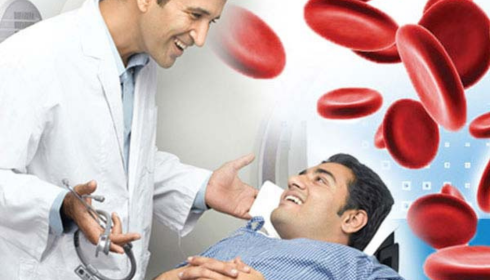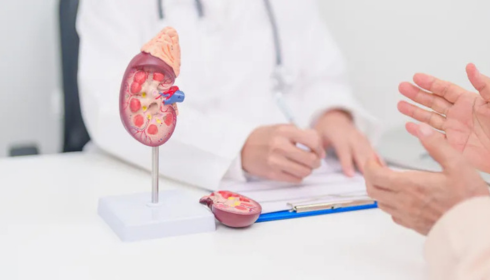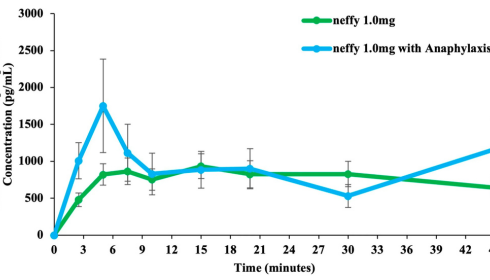
Understanding Kidney Stones: Causes, Symptoms, Treatment, and Prevention
Kidney stones are small, hard deposits formed from minerals and salts that accumulate in the kidneys. These stones can cause severe pain and complications if left untreated. Understanding kidney stones, including their causes, symptoms, treatment options, and preventive measures, can help individuals manage and avoid this painful condition. Here’s a comprehensive guide on kidney stones and how to prevent them.
What Are Kidney Stones?
Kidney stones are solid masses made of tiny crystals that form within the kidney. Kidney Stone These stones are formed when minerals and salts, such as calcium, oxalate, and uric acid, concentrate in the urine, creating deposits that harden over time. The stones may remain in the kidney or move down the urinary tract, potentially blocking the flow of urine and causing intense discomfort.
Types of Kidney Stones
There are several types of kidney stones, each caused by different factors:
- Calcium Stones: The most common type, calcium stones, form when calcium combines with oxalate or phosphate.
- Uric Acid Stones: These form in people who lose too much fluid or consume high amounts of protein.
- Struvite Stones: Often caused by urinary tract infections, struvite stones can grow quickly and become quite large.
- Cystine Stones: These are rare and caused by a genetic disorder that leads to an excess of cystine in the urine.
Identifying the type of stone is essential for effective treatment and prevention.
Symptoms of Kidney Stones
Kidney stones can go unnoticed until they move within the kidney or pass into the ureter, the tube connecting the kidney to the bladder. Common symptoms include:
- Severe pain in the back, side, or lower abdomen
- Pain that radiates to the groin or lower abdomen
- Frequent urination
- Painful urination
- Pink, red, or brown urine (indicating blood)
- Cloudy or foul-smelling urine
- Nausea and vomiting
The intensity and location of pain can vary based on the stone’s size and position in the urinary tract.
Causes and Risk Factors
Several factors increase the risk of developing kidney stones:
- Dehydration: Insufficient fluid intake concentrates urine, promoting stone formation.
- Diet: High salt, protein, and sugar diets can increase stone risk.
- Obesity: Excessive body weight affects kidney function and increases stone formation risk.
- Digestive Diseases: Conditions like Crohn’s disease affect calcium and water absorption, increasing stone risk.
- Family History: Genetics play a role, and individuals with a family history of kidney stones may be more susceptible.
Understanding these causes can help individuals make lifestyle changes to reduce their risk.
Diagnosis of Kidney Stones
Kidney stones are diagnosed through various methods, including:
- Imaging Tests: CT scans, ultrasounds, and X-rays can detect stones and determine their size and location.
- Urine Tests: These tests can reveal high levels of minerals or salts.
- Blood Tests: Blood tests identify factors contributing to stone formation, like calcium or uric acid levels.
Accurate diagnosis helps doctors recommend the most effective treatment options.
Treatment Options for Kidney Stones
The treatment of kidney stones depends on their size, location, and the individual’s symptoms. Common treatments include:
- Pain Management: Over-the-counter medications or prescriptions help relieve pain as the stone passes.
- Hydration: Drinking plenty of water can help small stones pass naturally.
- Medication: Certain medications can help relax the muscles in the ureter, making it easier to pass stones.
- Extracorporeal Shock Wave Lithotripsy (ESWL): This non-invasive procedure uses shock waves to break stones into smaller pieces.
- Surgery: Larger stones that cannot pass may require surgical removal. Procedures like ureteroscopy and percutaneous nephrolithotomy help remove or break up stones.
Preventing Kidney Stones
Taking preventive measures can reduce the likelihood of kidney stones. Here are some effective strategies:
- Stay Hydrated: Drinking plenty of water helps dilute urine and prevents mineral buildup.
- Limit Salt Intake: A high-sodium diet can increase calcium levels in the urine.
- Eat Calcium-Rich Foods: While calcium stones are common, dietary calcium helps reduce oxalate levels.
- Avoid Excessive Protein: High protein intake raises uric acid levels, which can contribute to stone formation.
- Limit Oxalate-Rich Foods: Foods like spinach, chocolate, and nuts are high in oxalates, which may increase the risk of calcium oxalate stones.
Making dietary changes and maintaining good hydration habits are key to preventing kidney stones.
When to See a Doctor
If you experience severe pain, persistent symptoms, or signs of infection, it’s crucial to seek medical attention. Left untreated, kidney stones can lead to complications such as kidney infections and chronic kidney disease.
Conclusion
Kidney stones can be extremely painful, but they are treatable and often preventable with lifestyle adjustments. kidney transplant hospital in bangalore Recognizing the symptoms, understanding the causes, and following preventive steps like proper hydration and diet modifications can make a big difference. If you suspect you have kidney stones, early diagnosis and treatment can help alleviate pain and prevent future episodes.
Managing kidney stones is all about awareness, timely action, and prevention. By staying informed and making small changes to your daily routine, you can reduce your risk and enjoy better kidney health.



